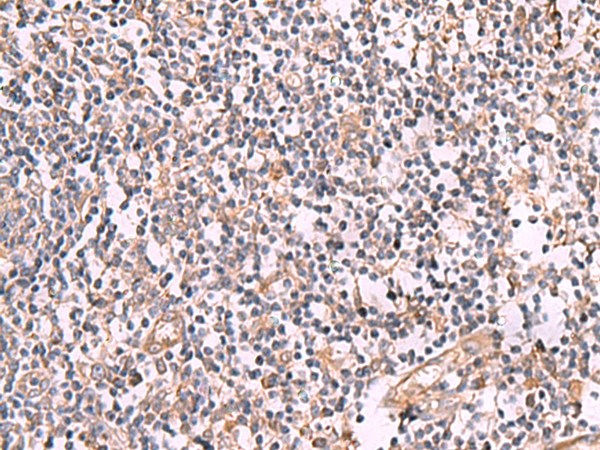
| WB | 咨询技术 | Human,Mouse,Rat |
| IF | 咨询技术 | Human,Mouse,Rat |
| IHC | 1/40-1/200 | Human,Mouse,Rat |
| ICC | 技术咨询 | Human,Mouse,Rat |
| FCM | 咨询技术 | Human,Mouse,Rat |
| Elisa | 1/5000-1/10000 | Human,Mouse,Rat |
| Aliases | KCC2; EIG14; hKCC2; EIEE34 |
| Host/Isotype | Rabbit IgG |
| Antibody Type | Primary antibody |
| Storage | Store at 4°C short term. Aliquot and store at -20°C long term. Avoid freeze/thaw cycles. |
| Species Reactivity | Human, Mouse, Rat |
| Immunogen | Synthetic peptide of human SLC12A5 |
| Formulation | Purified antibody in PBS with 0.05% sodium azide and 50% glycerol. |
+ +
以下是3篇与SLC12A5(KCC2)抗体相关的文献概览:
1. **文献名称**:*Neuronal chloride transport in epilepsy*
**作者**:Kahle KT 等
**摘要**:研究使用SLC12A5抗体验证KCC2蛋白在癫痫模型中的表达下调,揭示其功能缺陷导致神经元氯离子稳态失衡,加剧癫痫发作。
2. **文献名称**:*KCC2 interacts with the dendritic cytoskeleton to promote spine development*
**作者**:Li H 等
**摘要**:通过免疫组化(SLC12A5抗体)和共聚焦显微镜,证明KCC2通过与肌动蛋白结合调控树突棘形态发生,影响突触可塑性。
3. **文献名称**:*Dysregulation of KCC2 in neuropathic pain*
**作者**:Coull JAM 等
**摘要**:利用SLC12A5抗体进行Western blot和原位杂交,发现神经病理性疼痛模型中KCC2表达降低,导致脊髓GABA能抑制功能受损。
(注:以上文献信息为示例性概括,实际引用需核对原文准确性。)
The SLC12A5 antibody targets the solute carrier family 12 member 5 (SLC12A5), a gene encoding the neuron-specific potassium-chloride cotransporter 2 (KCC2). KCC2 plays a critical role in maintaining chloride ion homeostasis in neurons by mediating the electroneutral transport of K⁺ and Cl⁻ across cell membranes. This transporter is essential for establishing the low intracellular chloride concentration required for hyperpolarizing GABAergic neurotransmission, a process vital for inhibitory synaptic signaling in mature neurons. Dysregulation of KCC2 has been implicated in neurological disorders such as epilepsy, neuropathic pain, and autism spectrum disorders.
SLC12A5 antibodies are widely used in neuroscience research to study KCC2 expression, localization, and function in neuronal tissues. These antibodies enable detection via techniques like Western blotting, immunohistochemistry, and immunofluorescence, helping to elucidate KCC2's role in synaptic plasticity, neuronal development, and disease mechanisms. KCC2's activity is regulated by phosphorylation and interaction with scaffolding proteins, and its expression increases during neuronal maturation, distinguishing it from the immature neuron-specific transporter NKCC1.
Research using SLC12A5 antibodies has advanced understanding of chloride dysregulation in pathological conditions, highlighting its potential as a therapeutic target. Validated antibodies are crucial for specificity, as KCC2 shares structural homology with other SLC12 family members. Studies often pair antibody-based assays with functional analyses to explore KCC2 modulation in disease models or drug discovery.
×